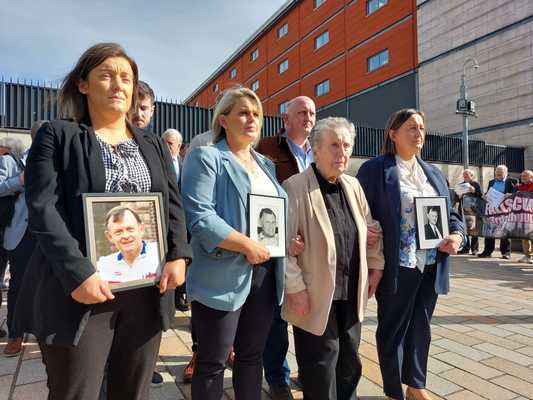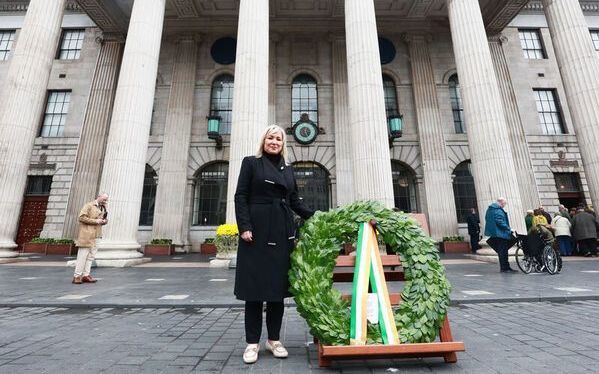TRADITIONALLY, elections for our local councils produce a high turn-out of voters – around 50 per cent. Which is terrific compared to England, where around 30 per cent show up. But while you’re digesting that feel-good factor, look at it from the other side: around half of those who could vote in our local elections don’t.
Why? Maybe because local elections in our stateen are rarely about local matters. The candidates don’t even pretend, at least in their posters, that they’re going to deliver anything different from the other candidates. What matters is whether unionist candidates are successful or nationalist/republican candidates are successful.
When Alex Maskey was elected as the first Sinn Féin councillor on Belfast City Council since the 1920s, unionist councillors booed and jeered when he entered the chamber for the first time. When he tried to make his maiden speech, they began to stamp their feet. And when he tried to deliver part of the speech in Irish, unionist councillors began to scream.
They may want to start screaming again after the votes for local councils are counted later this week. Recent opinion polls show Sinn Féin enjoying nearly 30 per cent of votes cast, with the DUP getting 23 per cent. If the opinion polls are accurate, Sinn Féin will repeat its Stormont election success and will enjoy (no, Virginia, ‘enjoy’ is not too strong a word) an increase of more than six per cent in its support.
COUNTING has got underway to elect 60 new councillors to sit on Belfast City Council after yesterday's local government election. https://t.co/tkRjQWV2TG
— Andersonstown News (@ATownNews) May 19, 2023
But, but, but... you may say. What possible difference does it make which political parties are largest when council decisions are confined to waste collection and the like? If the councillors are doing a good job – or a bad job – isn’t that all that matters?
Well, no, actually – and for the same reason that Stormont hasn’t reconvened since the Stormont election a year ago. The DUP says it doesn’t want to return to the Executive because the Windsor Framework is making it semi-detached from the rest of the UK. And while it doesn’t say that it gets a pain in its collective gullet at the thought of having its leader serve as deputy First Minister to a Sinn Féin First Minister, practically all nationalists/republicans and, I suspect, a good few of unionists are convinced this is the case.
Now you may point out, as Martin McGuinness used to, that there is no difference whatsoever between the powers of the First and deputy First Minister. And you’d be right. But it’s that old sinking feeling again. A sense that things are changing – and not for the better. A sense that the tide has turned and it’s showing its depth and power first in the South and now in the North.
And believe me, how a group of people feel about their future is often very important for how that future turns out. Check England’s Premier League: bring in a new manager or a new owner or whatever, and suddenly the team goes ‘on a roll’. In politics as in sport, the sense that you can do things is all-important.
So no, the number of Sinn Féin councillors elected to local councils won’t determine the date of Ireland’s reunification, any more than a uniformity in economic and trade rules on the island of Ireland wouldn’t mean that our stateen had left the UK. But it gives that sense of possibility, a realisation that Bobby Sands’s death will ultimately result in more than the right of republican prisoners to be considered political prisoners.
Meanwhile, if you read this before Thursday, would you, in the name of self-respect and every decent impulse, wash your face and get down to the voting centre. If you don’t, people you can’t stand will be deciding matters small and big about your life.









